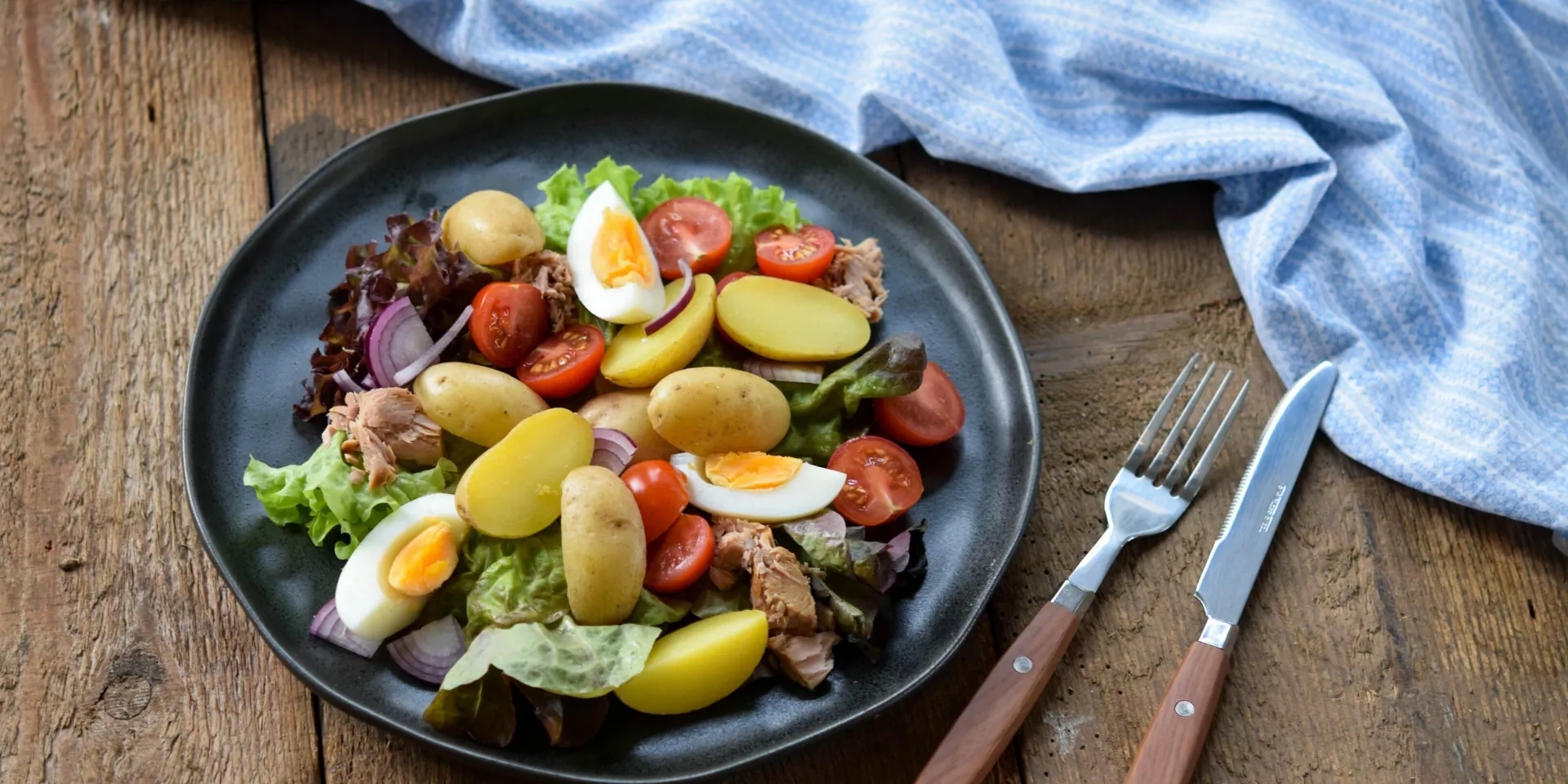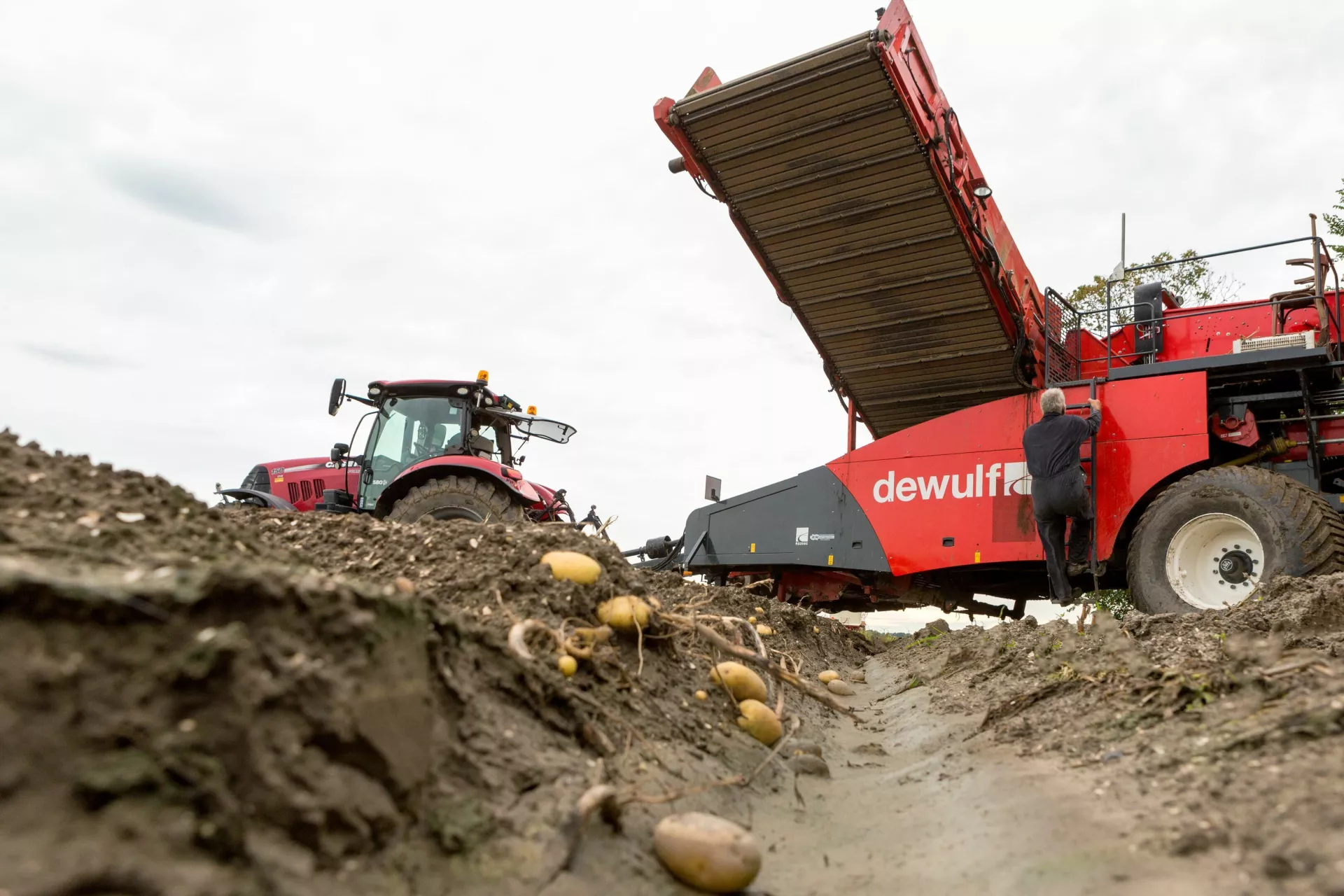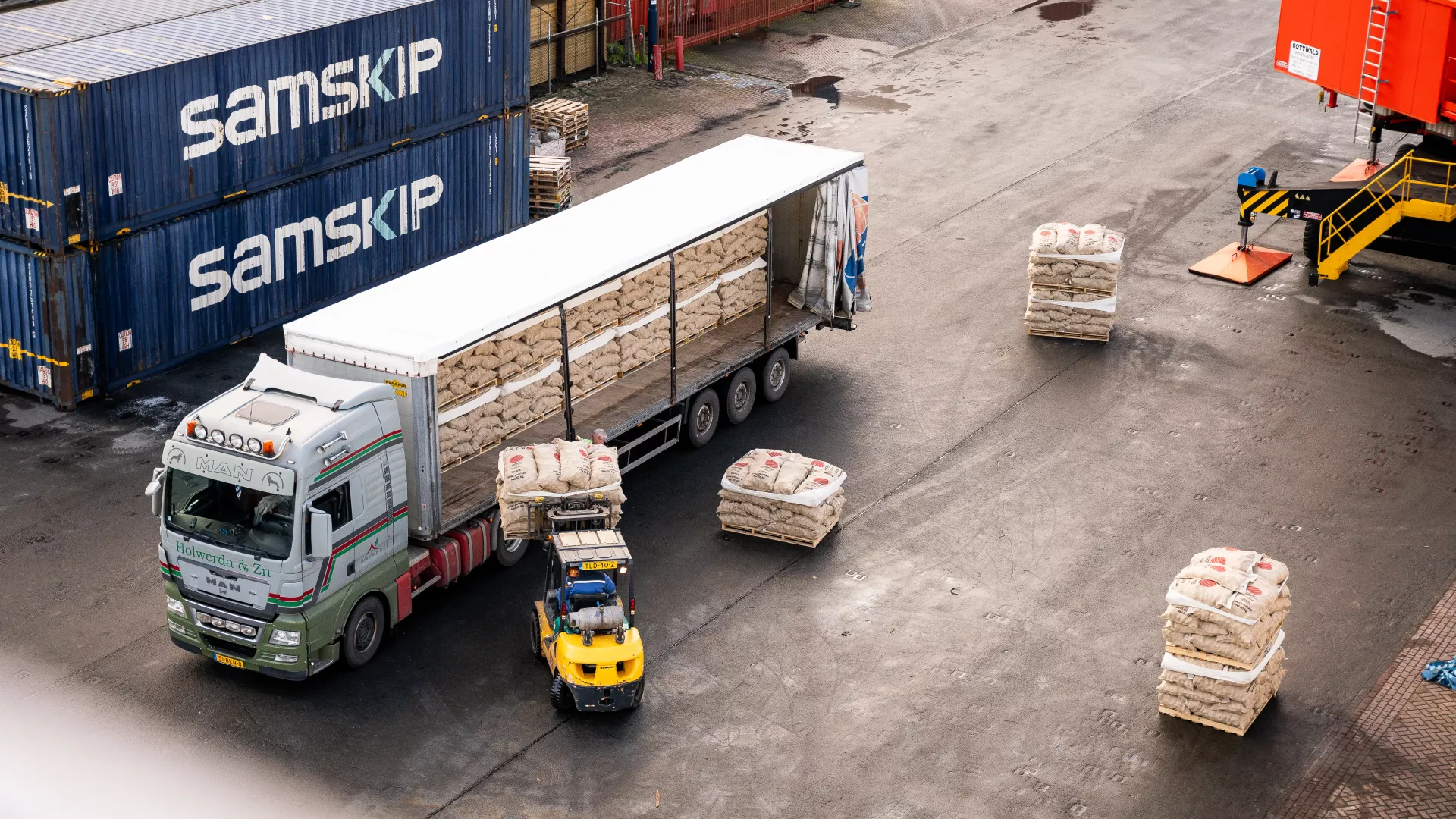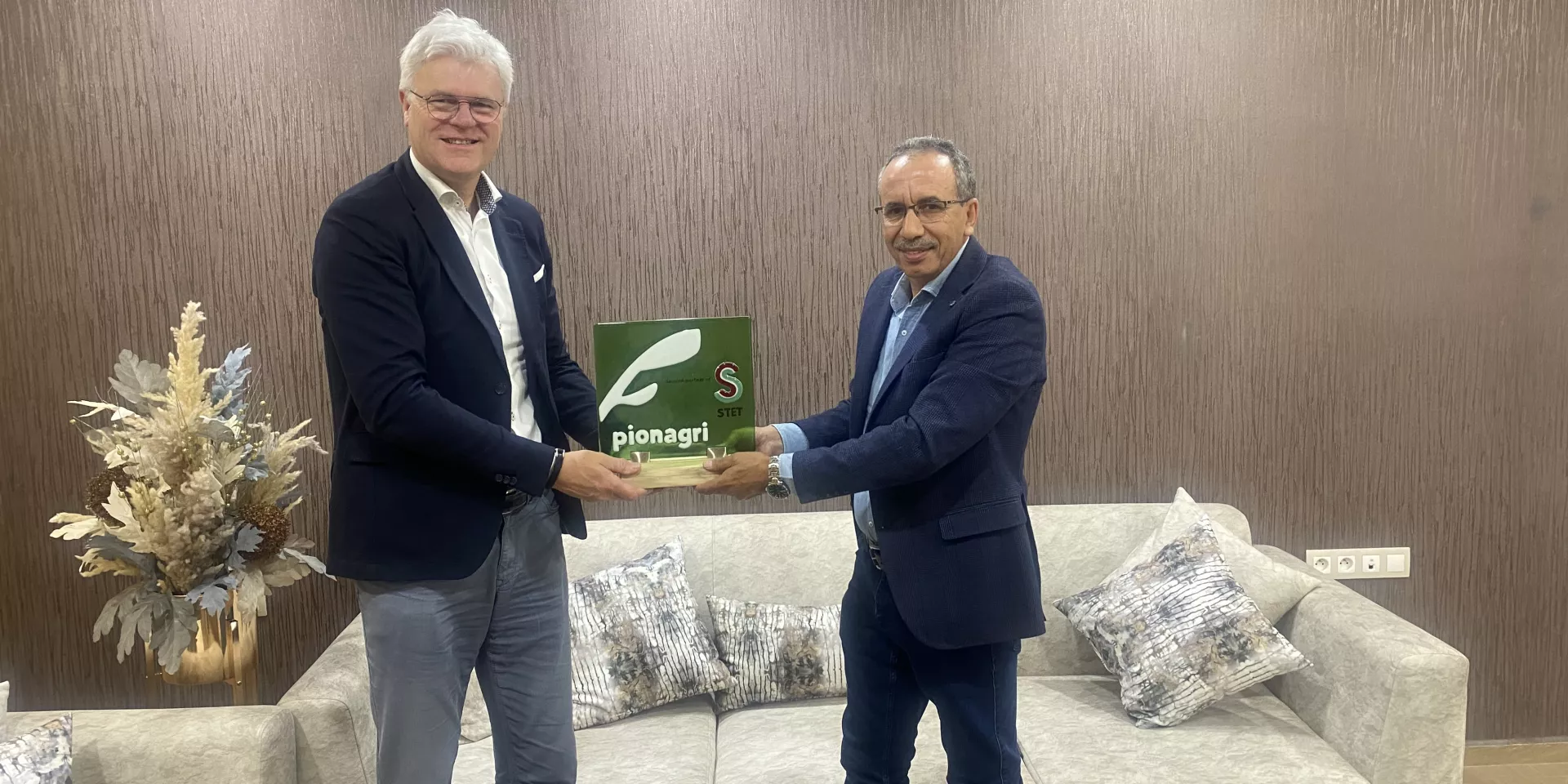Feed
Inspire and challenge

Inspire and challenge
Our new varieties lay the foundation for a bright future. We challenge our partners, customers, growers and ourselves to inspire each other and build a sustainable and promising future.

If the use of plant protection products is increasingly restricted, what alternatives are there? The Future-Proof Seed Potato Cultivation Project, involving 14 Dutch growers and Royal HZPC Group B.V., allows this question to be examined. They are experimenting with straw mulching, lower N dosage, gauze covers and strip cultivation, for example, and are learning a lot from each other and each other's experiences as a result. No fewer than 54 growers applied the straw mulching technique in 2023-2024, 8 growers focused on drip irrigation and seed potato production, and 12 growers have their mini-tubers and part PB2 (pre-basic seed potatoes) under nets.
An important development in seed potato cultivation is Integrated Crop Management (ICM). In a nutshell: ICM is a systematic approach to growing healthy crops with limited use of crop protection products, addressing crop rotation, diseases, pests and weeds in a comprehensive approach. So everything you do as a grower needs to be aligned to achieve the best results. This calls for clear choices and a multi-year plan in relation to tilling, rotation schemes with other crops, green manures, driving lanes and basically everything else involved in arable farming. This situation varies for every grower. At Royal HZPC Group B.V., we follow everything closely, put growers in touch with each other and offer advice when it comes to seed potato cultivation. The choice to work with ICM is up to the growers themselves.
The carbon footprint of potatoes is small compared to other major food crops. But how much CO2 is emitted, exactly? To answer that question, Royal HZPC Group B.V. is working with Agrico and Meijer to develop a uniform method that measures greenhouse gas emissions from seed potato cultivation so that every trading house can report on this in the same way. It also helps to better quantify the environmental impact if we choose to produce locally, e.g. is it better to grow and transport seed potatoes in the Netherlands? Or is the impact on the environment reduced if you grow locally and continue growing seed potatoes for another generation or two? This uniform approach also provides insights into the positive impact of new varieties, which may be able to cope with less fertiliser, on CO2 emissions. After all, the use of fertilisers has the biggest impact on CO2 emissions.

In 2023, HZPC UK, part of Royal HZPC Group B.V., acquired mini-tuber producer T.L.C. Potatoes Ltd in Scotland. The past year has been all about modernisation, investment and aligning logistics with those of Royal HZPC Group B.V. From April 2024, day-to-day management will be in the hands of HZPC UK. As a result of Brexit, it is no longer possible to transport seed potatoes to or from the United Kingdom. We used to supply high-quality seed potatoes to that location and then leave production to third parties, but we can't do that now. Thanks to the acquisition, however, we have been able to secure mini-tuber production in the UK. UK growers will thus have faster access to new, robust varieties.
To develop varieties that do well in tropical conditions, we work with the International Potato Centre (CIP) and Syngenta Foundation in Vietnam. By joining forces in this unique private-public partnership, we can accelerate the potato breeding and selection process. We are proud of the first major success from this collaboration, the new potato variety HCIP210, and the fact that it was developed within eight years, where the development of new potato varieties normally takes 10 to 12 years. HCIP210 gives high yields, has a long period of dormancy, performs well in different conditions and scores well on resistance to Phytophthora and PVY and PVX virus.

General manager Pionagri in Morocco
The biggest challenge is to contribute to sustainable agriculture with varieties suitable for growing conditions in Morocco. We are also seeing the effects of climate change here, including climate stress, water shortages, diseases and viruses. The demand for sustainable varieties resistant to this is increasing and we are mainly selecting varieties with good resistance packages that have high yields with reduced input. But we also look beyond this, for instance at the period of dormancy, growth time, tuber shape and size, skin colour and cooking quality. We take as many aspects as possible into account because that is what growers and the market are asking for.
El Ouafi el Ayachi: "We have 20 trial fields spread across the main growing areas in Morocco. Each growing area has different conditions and thus requires different varietal characteristics. We put a lot of time into testing and selecting new varieties and, in this context, work with various partners at home and abroad. There are more than 350 different varieties in our trial fields every year and we are expanding our research and selection programme to other countries in North Africa with similar growing conditions. Our R&D programme forms the foundation of Pionagri, and is in the hands of an experienced team of agronomists. This allows us to fully support growers and distributors and meet their needs and requirements."
have now been working closely together for more than a decade. It is a collaboration based on mutual trust and respect
"One of those important cooperation partners is STET. We have now been working closely together for more than a decade. It is a collaboration based on mutual trust and respect; STET is one of the leading seed potato companies in the Netherlands with a great range of varieties that are very successful in the Moroccan market. The company has a robust breeding programme and every year we test and select more than 15 STET varieties in our own trial fields.
With STET, we are looking at how we can develop further together, with varieties suitable for growing conditions in Morocco. Our cooperation has always been very successful and we are proud to have worked with STET for so long. With STET, we are building a strong future, with a wide range of varieties that meet the demands and needs of growers and the market."
Software for digital-first corporate reporting
With iWink Report you create publications in a simple and efficient way. You save time, mistakes and stress. You can publish to an online document and a PDF from one place. This way you give your readers the best possible experience.